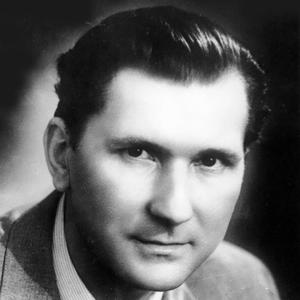
Lavrovsky

Born on the 5th (18th) of June 1905 in St Petersburg. In 1922 after graduating from the School of Choreography, he danced with the troupe of the Leningrad State Academic Opera and Ballet Theatre for thirteen years (now the Mariinsky Theatre).
In 1935-38 was Artistic Director of the Leningrad State Academic Maly Opera Theatre / MALEGOT (now the Mikhailovsky Theatre). In 1938 headed the ballet troupe of the Kirov Opera and Ballet Theatre (now the Mariinsky Theatre).
In 1944 was appointed Artistic Director of the Bolshoi Theatre ballet troupe, which he held — with short breaks — for twenty years.
In 1959 he established the country’s first Ballet on Ice ensemble, the leadership of which he combined with his activities in the theatre.
Having finally said goodbye to the Bolshoi Theatre, he became artistic director of the Moscow State Academic Choreographic School. He began teaching back in 1948 at the State Institute of Theatre Arts (GITIS), and in 1952 received the title of professor.
He took part in the organization of a choreographic school in Cairo (Egypt).
Repeatedly staged ballets abroad: The Tale of the Stone Flower (Helsinki, 1961), Romeo and Juliet (Budapest, 1962), Giselle in his own version (Belgrade, 1956, Helsinki, 1958, Sofia, 1967).
Leonid Lavrovsky went down in the history of ballet as a choreographer who recorded the highest achievement of the “drambalet” / dramatic ballet direction, characterized by the predominance of drama over the actual dance component of the performance. His ballet Romeo and Juliet became a legend of the ballet theatre world. It shown on the first foreign tour of the Bolshoi Theatre — in England in 1956, where it received a grand reception from the public and later brought to life other choreographic interpretations of the Shakespearean tragedy — by John Cranko and Kenneth MacMillan, who had been under the obvious influence of that production.
From the review published in The Times newspaper: "Can a ballet convey the poetry of the tragedy Romeo and Juliet without the words of Shakespeare? Yes, it can. The performance of the Bolshoi Theatre <...> is an accurate translation of Shakespeare’s every word into the language of true poetry".
Subsequently, when the era of drambalet became a history, the choreographer reconsidered his views. Classical Symphony that he staged for the choreographic school, also to the music by Sergei Prokofiev, served exclusively Terpsichore, and not Melpomene. And it has also remained a popular repertoire ballet ever since.
Died in Paris, where he was on tour with the Moscow State Academic Choreographic School, on the 27th of November 1967. (The tour was a triumphant success.)
Buried at Novodevichy Cemetery.
The title of Honoured Artist of the RSFSR
Stalin (State) Prize
The Order of the Red Banner of Labour
The title of People’s Artist of the RSFSR
The title of People’s Artist of the USSR
The title of People’s Artist of the USSR
The Order of Lenin